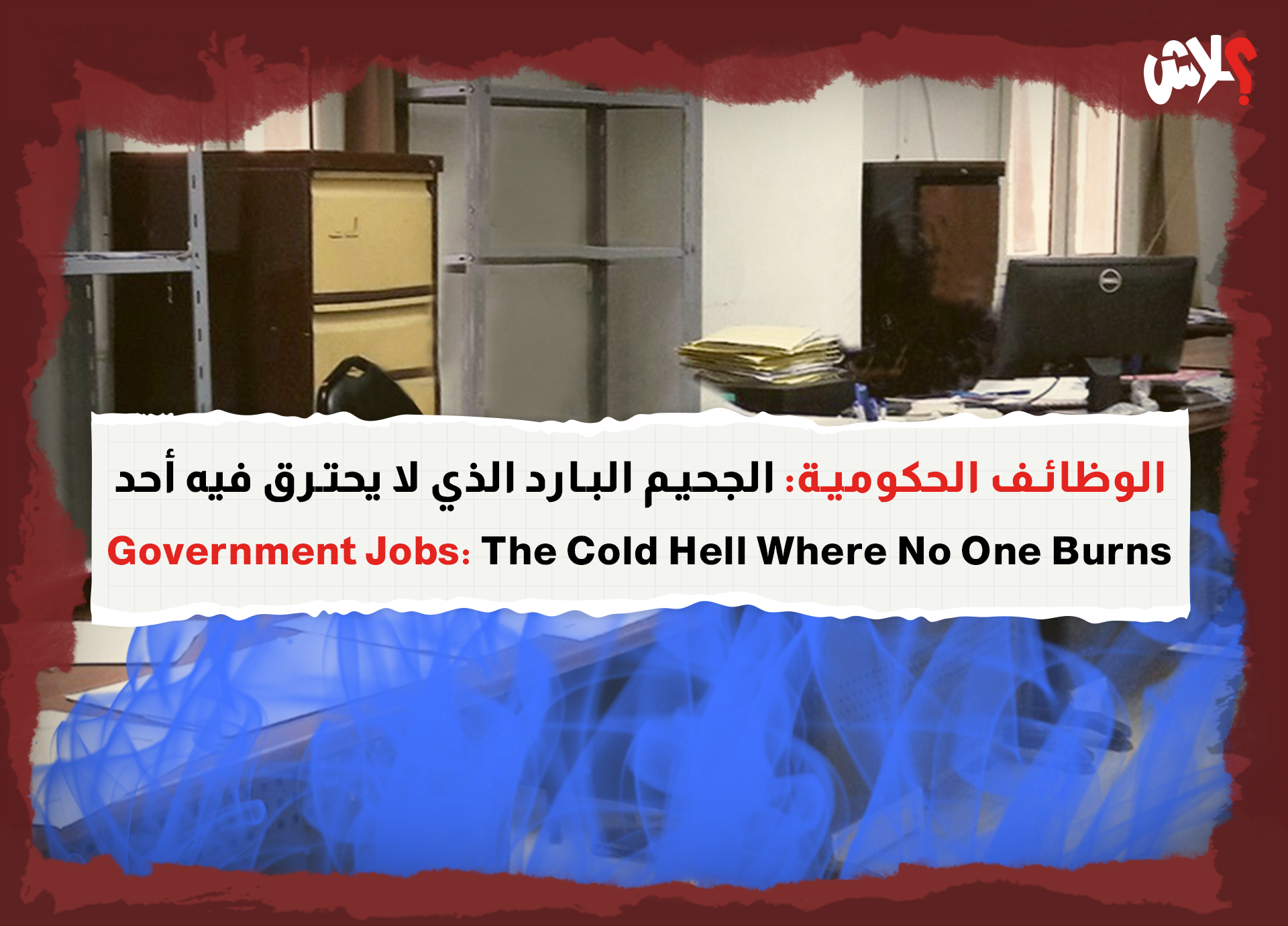The Government Job: A Cold Hell Where No One Burns?
Securing a bright future has always been the dream that haunts youth across generations. But in Libya, as in many places, that dream hangs between two difficult choices: launching a private business that could become a success story, or joining the herd of public sector employees in search of a steady salary and a guaranteed pension. Yet, in Libya’s specific reality, both options seem to resemble being caught between the illusion of wealth in private enterprise and the sleep-like stagnation of public service.
So, let’s ask a rational question: What’s the ideal choice? And more importantly do you even have one?
In a perfect world, private business is the road to wealth and financial freedom. It allows you to become a Libyan version of Mark Zuckerberg, managing a successful project and earning millions. But the reality is far harsher. Entrepreneurship in Libya is more like a high-stakes gamble. You need startup capital which you likely don’t have a stable work environment, and a network of connections to open the many closed doors. Instead, you find yourself trapped in unstable markets and an economic system that punishes innovation rather than supports it.
Do you think a brilliant idea is all it takes to succeed? Think again before falling into that trap. Even if you invent something that rivals the smartphone, you’ll face barriers of a different kind: skyrocketing costs for raw materials, and the complete absence of structural support. In short, private work is a risk but the catch is, you’re betting everything you have on a game with no clear rules.
On the other hand, a government job might seem like the promised land: a stable income, retirement benefits, maybe even health insurance if you’re lucky. But let’s be honest: what are you really signing up for in a public-sector role? Endless queues of soul-crushing bureaucracy, repeated orders from disgruntled bosses, and files endlessly passed from one desk to another without purpose. And yet, public service remains the dream for many youth not because it offers a dignified life, but because it allows survival without having to take major risks.
But the real dilemma isn’t between private and public work it’s in finding work at all. Even after graduating with a degree that exceeds your hopes, you may end up standing in never-ending unemployment lines. Worse still, many graduates end up in jobs that have nothing to do with their field of study. Imagine a doctor working in a government archive, or an engineer managing waiting lines. This isn’t a dystopian fantasy it’s Libya’s reality.
The confusion young people feel isn’t just emotional it’s the direct outcome of an economic and social system that seems designed to frustrate and break them. The private sector suffers from the absence of supporting legislation and real financing programs, while the public sector is crushed by inefficiency and favoritism.
You might think the solution lies in youth courage and creativity. Yet even those who venture into e-commerce or freelancing face another set of challenges slow internet, high service costs, and marketing hurdles. And those who dream of reforming the public sector are like people trying to rebuild a sunken ship without ever surfacing. It’s daydreaming with no tangible outcome.
Let’s speak frankly: Is success in private or public work just a matter of luck? Or is the entire system in need of a full reset?
The truth is, success in either path requires a robust and supportive economic infrastructure. Private enterprise needs laws that protect small and medium businesses, training programs to build skills, and a competitive market where everyone has a fair chance. The public sector, on the other hand, needs radical reform systems that encourage productivity and reward competence instead of drowning in bureaucracy, nepotism, and favoritism.
Of course, there’s still a glimmer of hope. Libyan youth have proven time and again their ability to adapt. Some have turned challenges into opportunities building small tech-based businesses or working online with global firms. But these individual successes aren’t enough to change the bigger picture.
Ultimately, the real dream isn’t just choosing between private and public work it’s building an environment where young people can chase their ambitions without feeling like they’re running against time and odds. That future requires true collaboration: between a government still dreaming in rosy illusions, a virtually nonexistent private sector, and a society distracted by trivialities. Only then can young people choose between career paths based on passion and ambition not on harsh realities forced upon them.
For now, youth are left grappling with an existential dilemma: Do you risk it all to become an entrepreneur in a hostile environment? Or do you wait endlessly for a government job like waiting for a bus at an abandoned station?
The choice is yours but in either case, don’t forget to bring a hefty dose of patience and maybe, just maybe, a bit of luck.

